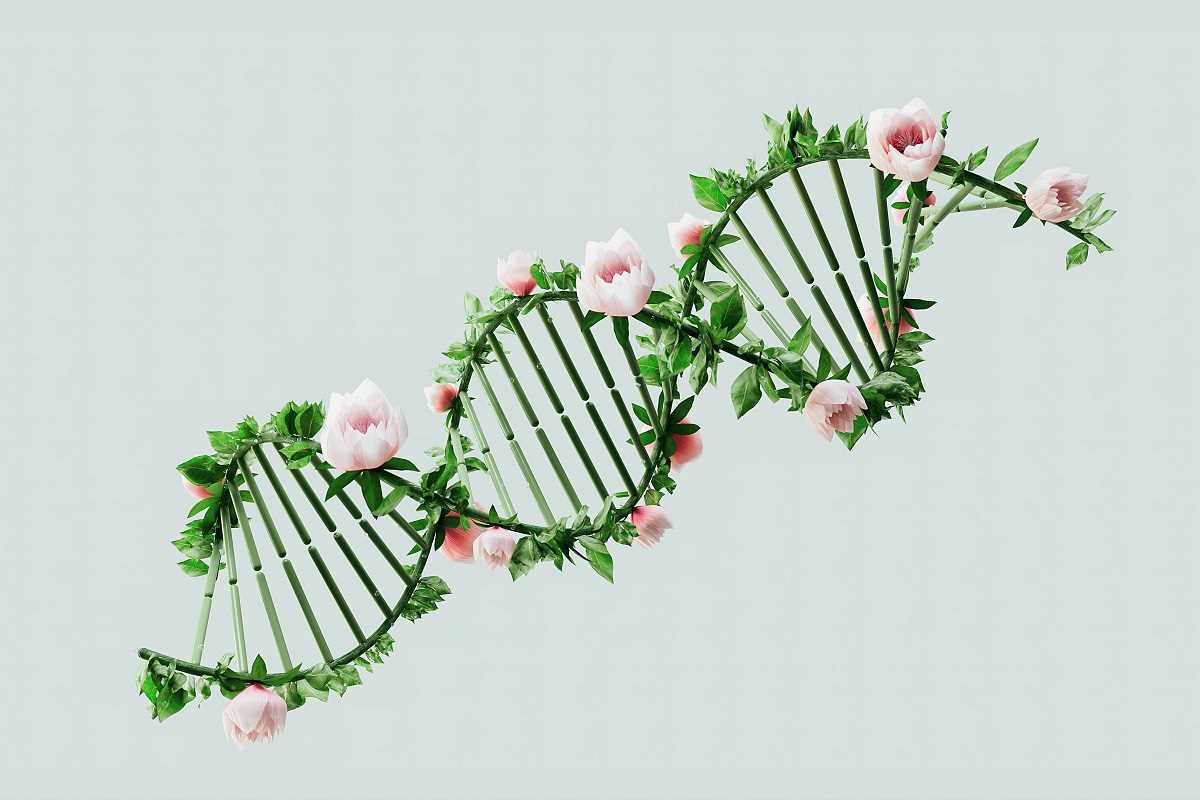If you're in your 40s or 50s, you've likely witnessed remarkable advancements in medical technology that have reshaped healthcare. Today, genetic testing offers unprecedented insights into your health risks, but understanding what these tests can and cannot tell you is crucial for making informed decisions about your health journey. Genetic testing has evolved from specialized research tools to accessible consumer options available through your doctor's office or even direct-to-consumer kits.
As you consider your health planning for the years ahead, genetic testing provides a powerful tool for understanding your future health risks. The reality is both more complex and more encouraging than you might expect.
How Genetic Testing Actually Works
Your DNA contains the blueprint for every cell in your body, written in a code of four chemical letters. Genetic tests examine specific sections of this code to identify variations that might increase your risk for certain health conditions. Think of it like checking the foundation of your house – some variations create weak spots that need extra attention, while others have no impact on structural integrity.
Modern genetic testing analyzes different types of genetic information. Single-gene tests look for mutations in one specific gene, like the BRCA1 and BRCA2 genes associated with breast and ovarian cancer risk. Panel testing examines multiple genes simultaneously, often focusing on those linked to particular conditions like heart disease or neurological disorders. Chromosomal tests look at entire chromosomes or long stretches of DNA to identify large-scale changes.
The process itself is surprisingly simple. A healthcare provider or testing company collects a sample of your saliva, blood, or tissue. Laboratory technicians then extract your DNA and use sophisticated equipment to "read" the genetic sequences they're examining. Computer programs compare your results to established databases to identify any significant variations.
What Genetic Testing Can Reveal About Your Health
Genetic testing excels at identifying inherited conditions caused by mutations in single genes. These monogenic disorders follow predictable inheritance patterns, making them relatively straightforward to predict and understand.
Hereditary Cancer Syndromes represent some of the most well-established applications of genetic testing. Mutations in genes like BRCA1, BRCA2, MLH1, and MSH2 significantly increase your risk for specific cancers. If you carry a BRCA1 mutation, your lifetime risk of breast cancer jumps from about 12% (the general population risk) to 55-72%. This knowledge empowers you to pursue enhanced screening, preventive treatments, or lifestyle modifications.
Cardiovascular Conditions with strong genetic components include familial hypercholesterolemia, hypertrophic cardiomyopathy, and certain arrhythmia syndromes. Genetic testing can identify people who will develop extremely high cholesterol levels regardless of their diet and exercise habits, allowing for early intervention with medications that can prevent heart attacks.
Neurological Disorders like Huntington's disease, some forms of Alzheimer's disease, and certain epilepsy syndromes have genetic variants that substantially increase risk. While these results can be emotionally challenging, they provide valuable information for life planning and family decisions.
Pharmacogenomics – how your genes affect your response to medications – represents an emerging area where genetic testing provides actionable information. Your genetic variations can determine whether you metabolize certain drugs quickly or slowly, helping doctors choose the right medications and dosages from the start.
Understanding the Significant Limitations
While genetic testing provides valuable insights, it's crucial to understand what it cannot tell you. Most common health conditions result from complex interactions between multiple genes, environmental factors, and lifestyle choices – not single genetic mutations.
Environmental Factors play enormous roles in whether genetic predispositions actually manifest as disease. Someone with genetic variants associated with lung cancer might never develop the condition if they avoid smoking and secondhand smoke. Conversely, environmental exposures can trigger diseases even in people without significant genetic risk factors.
Lifestyle Choices significantly influence how genetic risks play out in real life. Your diet, exercise habits, stress management, sleep patterns, and social connections all affect your health outcomes. A person with genetic variants associated with type 2 diabetes might never develop the condition through maintaining a healthy weight and staying physically active.
Polygenic Risk – the cumulative effect of many small genetic variations – remains challenging to predict accurately. While scientists can identify some patterns, translating polygenic risk scores into meaningful individual predictions requires more research. Your genetic risk score might be elevated, but that doesn't mean you'll definitely develop the condition.
Variable Penetrance means that having a disease-associated genetic variant doesn't guarantee you'll develop that disease. Some people carry mutations associated with serious conditions but never experience symptoms. Environmental factors, other genetic variations, and plain luck all influence whether genetic predispositions become reality.
Genetic Testing in Personalized Medicine
Healthcare providers increasingly use genetic information to customize prevention and treatment strategies. This personalized approach represents one of the most promising applications of genetic testing.
Precision Screening Programs use genetic risk information to determine who needs more frequent or intensive screening. Women with BRCA mutations might start mammography screening at age 25 instead of 40, or include MRI scans in their routine monitoring. Men with genetic variants associated with prostate cancer might begin screening earlier and more frequently.
Targeted Prevention Strategies can be remarkably effective when guided by genetic information. People with genetic variants that dramatically increase cholesterol levels benefit from starting statin medications early, regardless of their current cholesterol numbers. Those with genetic predispositions to blood clots might avoid certain medications or take preventive measures during high-risk situations.
Treatment Selection increasingly incorporates genetic information. Cancer treatment now routinely includes genetic testing of tumors to identify the most effective therapies. Similarly, genetic variations affect how you respond to blood thinners, antidepressants, and pain medications, allowing doctors to choose treatments more likely to work for your specific genetic profile.
Important Ethical Considerations
Genetic testing raises significant ethical questions that you should consider before pursuing testing. These aren't just academic concerns – they have real implications for you and your family.
Family Implications extend beyond your personal health decisions. Your genetic test results provide information about your relatives' risks as well. Learning that you carry a mutation associated with inherited cancer might create emotional burdens for family members who must decide whether they want to know their own status.
Privacy and Discrimination concerns remain relevant despite legal protections. The Genetic Information Nondiscrimination Act protects against health insurance and employment discrimination based on genetic information, but gaps exist in life insurance, disability insurance, and long-term care coverage.
Psychological Impact can be substantial, especially for conditions that currently have limited treatment options. Learning you're at high risk for Alzheimer's disease might cause anxiety and affect your quality of life, even if you never develop the condition.
Insurance Considerations require careful thought. While health insurers cannot use genetic information to deny coverage or set premiums, other types of insurance have fewer restrictions. Some people choose to purchase adequate life and disability insurance before pursuing genetic testing.
Making Informed Decisions About Genetic Testing
If you're considering genetic testing, approach the decision thoughtfully and with professional guidance. The information you receive will be with you for life, so it's worth taking time to understand the implications.
Genetic Counseling should be your first step, especially if you're considering testing for serious hereditary conditions. Genetic counselors help you understand your family history, explain what specific tests can and cannot tell you, and discuss the potential implications of different results. They provide unbiased information to help you make decisions that align with your values and goals.
Consider Your Motivations for pursuing genetic testing. Are you seeking information to guide medical decision-making, satisfy curiosity, or plan for the future? Clear goals help you choose appropriate tests and interpret results meaningfully.
Evaluate Your Support System before pursuing genetic testing, especially for serious conditions. Having trusted family members, friends, or healthcare providers to discuss results with makes the process less overwhelming and more beneficial.
Understand Test Limitations specific to the tests you're considering. Direct-to-consumer tests often provide less comprehensive information than clinical genetic testing, and their health risk predictions may be less accurate. Work with healthcare providers who can help you choose appropriate tests and interpret results in the context of your overall health.
Working With Healthcare Professionals
Genetic testing works best as part of comprehensive healthcare planning, not as a standalone decision-making tool. Your healthcare team can help you integrate genetic information with your medical history, family history, and current health status to develop personalized prevention and treatment strategies.
Primary Care Providers can help you determine whether genetic testing is appropriate for your situation and refer you to specialists when needed. They understand your overall health picture and can help you prioritize genetic testing alongside other health screening and prevention measures.
Genetic Specialists provide expertise in interpreting complex genetic test results and developing management plans for people with genetic predispositions. They stay current with rapidly evolving research and can help you understand how new discoveries might affect your health planning.
Mental Health Support may be valuable, especially if genetic testing reveals elevated risks for serious conditions. Counselors experienced in genetic counseling can help you process emotional responses and develop healthy coping strategies.
Disclaimer: The content provided on SuperHealthyTips is for informational and educational purposes only. This information is not intended to be a substitute for professional medical advice, diagnosis, or treatment.
 (Image via
(Image via





